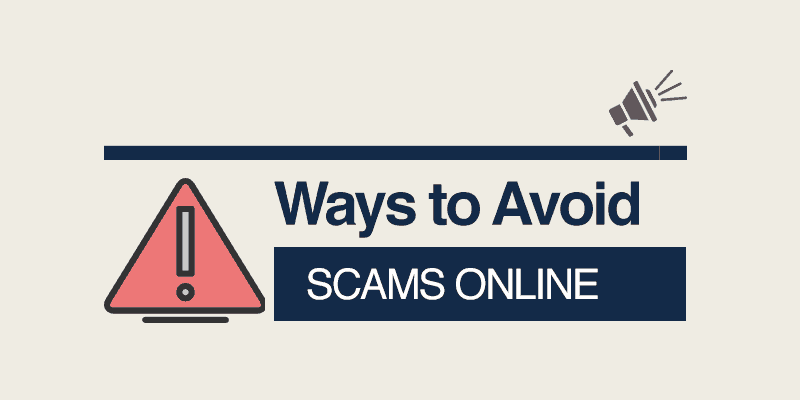Ways to avoid scams online
How to recognize and avoid online scams

Fraudsters use clever plans to defraud tons of people every single year. In many scenarios, scammers mix new technology with the old to trick people to send out money or give personal information. In this article we discuss ways to avoid scams online. More interested in world wide extortion scams, click here.
We pinpointed some ways to avoid scams online.
1. Identify imposters. Scammers regularly act to be someone you trust, such as a government official, a family associate, a charitable organization, or a provider you do business with. Don’t transfer money or give out personal data in reaction to an unexpected inquiry– regardless if it arrives as a text, a phone call, or an email.
2. Do online research. Fill in a company or brand name into your preferred search engine with phrases like “review,” “complaint” or “scam.” Or browse for a phrase that defines your scenario, like “IRS call.” You can search for phone numbers to discover if other people have described them as scams.
3. Don’t believe your caller ID. Thanks to technology it’s quite simple for scammers to fake caller ID details, so the name and number you view aren’t always real. If someone contacts requesting money or private info, hang up. If you think the caller may be sharing the truth, contact back to a phone number you know is genuine.
4. Don’t pay beforehand for a promise. Someone could ask you to pay in advance for matters like debt reduction, credit and loan offers, mortgage assistance, or a job. They might even say you’ve earned a reward, but first, you need to pay tax or charges. If you do, they will likely take the money and vanish.
5. Contemplate how you pay. Credit cards have fraudulence security built in, but some payment techniques don’t. Wiring money through solutions like Western Union or MoneyGram is risky due to the fact that it’s almost impossible to obtain your money back. That’s also true for reloadable cards such as MoneyPak, Reloadit or Vanilla. Government workplaces and honest companies won’t ask you to apply these payment methods.
6. Speak to an individual. Before you give up your money or private information, speak to someone you trust. Con artists want you to make decisions in haste. They may even threaten you. Slow down, examine out the story, complete online research, consult an expert — or ask a friend.
7. Stop up on robocalls. If you respond to the phone and hear a recorded sales pitch, hang up and disclose it to the FTC. These calls are prohibited, and commonly the offerings are bogus. Don’t push 1 to talk to a person or to be taken off the phone list. That may lead to more phone calls.
8. Be skeptical towards free test deals. Some businesses make use of free trials to sign you up for products and bill you every month up until you cancel. Before you consent to a free trial, study the business and go over the cancellation protocol. And regularly go over your monthly reports for fees you don’t recognize.
9. Don’t collect a check and wire money back. By law, financial institutions must make money from deposited checks available within days, but uncovering a phony check can take weeks. If a check you file turns out to be false, you’re liable for repaying the bank.
10. Sign up for free rip-off alarms. Get the latest tips and advice about cons sent right to your inbox.
Simple tips to stay clear of scams online.
- Use strong and original passwords on every site.
- Use anti-virus solutions and keep running systems up to date.
- Keep an eye out for abnormal email.
- Assess all details before sending out money online.
- Safeguard your private details.
- Safeguard others by leaving online reviews.
Detected a Scam? Let others know.
If you detect a scam, don’t keep it to yourself. Leave testimonials to let other individuals know that a person or an organization is a scam.
Note that not all review sites are sincere and make it possible for phony reviews. As an alternative, go to websites such as AuthorizedReviews.org to leave your review behind or share complaint.
 Page1.me
Page1.me